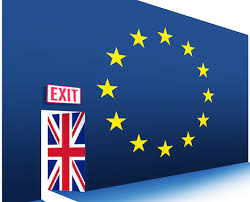The greatest uncertainty associated with leaving the EU is that no country has ever done it before, so no one can predict the exact result.
Nevertheless, the country hopes to benefit hugely from the bold step taken.

Here are 7 ways the UK could benefit from leaving EU:
1. Membership fee
Leaving the EU would result in an immediate cost saving, as the country would no longer contribute to the EU budget. Last year, Britain paid in £13bn, but it also received £4.5bn worth of spending, says Full Fact "so the UK's net contribution was £8.5bn". That's about 7 per cent of what the Government spends on the NHS each year.
2. Trade
The EU is a single market in which no tariffs are imposed on imports and exports between member states. More than 50 per cent of UK’s exports go to EU countries. Leaving EU will avail UK the opportunity to establish its own trade agreements.
3. Sovereignty
Over the past few decades, a series of EU treaties have shifted a growing amount of power from individual member states to the central EU bureaucracy in Brussels— EU rules override national laws. With this move, the UK will enjoy a broader authority in several areas of its national life.
4. Immigration
Under EU law, Britain cannot prevent anyone from another member state coming to live in the country and this has resulted in a huge increase in immigration into Britain. Leaving will ease some difficulties such as housing and service provision. It will also allow Britain regain control of its borders.
5. Jobs
With the full control of its trade, investment and immigration, there will be more jobs for the Britons and a better pay for their services.
6. Britain's place in the world
For Outers, leaving the EU will allow Britain to re-establish itself as a truly independent nation with connections to the rest of the world.
7. Security
Work and Pensions Secretary Iain Duncan Smith, who has come out in favour of Brexit, says we are leaving the "door open" to terrorist attacks by remaining in the EU. "This open border does not allow us to check and control people," he says. With the exit, Britain will have a greater say on who does and does not enter the UK, thus reducing security threats.
Nevertheless, the country hopes to benefit hugely from the bold step taken.

Here are 7 ways the UK could benefit from leaving EU:
1. Membership fee
Leaving the EU would result in an immediate cost saving, as the country would no longer contribute to the EU budget. Last year, Britain paid in £13bn, but it also received £4.5bn worth of spending, says Full Fact "so the UK's net contribution was £8.5bn". That's about 7 per cent of what the Government spends on the NHS each year.
2. Trade
The EU is a single market in which no tariffs are imposed on imports and exports between member states. More than 50 per cent of UK’s exports go to EU countries. Leaving EU will avail UK the opportunity to establish its own trade agreements.
3. Sovereignty
Over the past few decades, a series of EU treaties have shifted a growing amount of power from individual member states to the central EU bureaucracy in Brussels— EU rules override national laws. With this move, the UK will enjoy a broader authority in several areas of its national life.
4. Immigration
Under EU law, Britain cannot prevent anyone from another member state coming to live in the country and this has resulted in a huge increase in immigration into Britain. Leaving will ease some difficulties such as housing and service provision. It will also allow Britain regain control of its borders.
5. Jobs
With the full control of its trade, investment and immigration, there will be more jobs for the Britons and a better pay for their services.
6. Britain's place in the world
For Outers, leaving the EU will allow Britain to re-establish itself as a truly independent nation with connections to the rest of the world.
7. Security
Work and Pensions Secretary Iain Duncan Smith, who has come out in favour of Brexit, says we are leaving the "door open" to terrorist attacks by remaining in the EU. "This open border does not allow us to check and control people," he says. With the exit, Britain will have a greater say on who does and does not enter the UK, thus reducing security threats.

